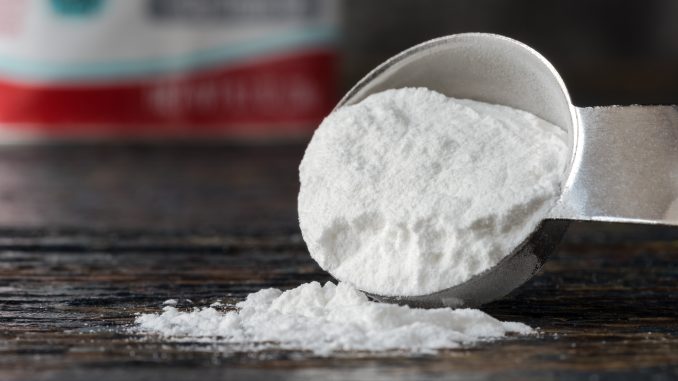
Maintaining optimal hygiene in the intimate area is crucial for a woman’s overall health and well-being. While there are various products available in the market, some women prefer to explore natural alternatives. One such option is baking soda, a common household ingredient known for its versatile properties. In this article, we will discuss how baking soda can be used as a natural way to keep your private parts bacteria and odor-free, while also highlighting some important considerations.
Understanding Baking Soda
Baking soda, also known as sodium bicarbonate, is a white crystalline powder with alkaline properties. It has been used for centuries as a cleaning agent, deodorizer, and mild abrasive due to its ability to neutralize pH levels and absorb odors. Baking soda is readily available, affordable, and considered safe for external use on the body.
Maintaining pH Balance
The pH balance of the intimate area is crucial for its health. The vagina naturally maintains an acidic pH level (around 3.8 to 4.5) to keep harmful bacteria in check and maintain a healthy balance of microorganisms. Disruptions in this pH balance can lead to infections and discomfort.
Baking soda is alkaline in nature, which means it can neutralize excessive acidity in the vagina. However, it is important to note that the vagina is self-cleaning and capable of maintaining its pH balance. Introducing baking soda should be done with caution and under the guidance of a healthcare professional to avoid disrupting the natural environment.
Using Baking Soda for External Care
Baking soda can be used externally to help maintain freshness and reduce odor in the genital area. Here are some tips for using baking soda safely:
- Baking Soda Bath: Add half a cup of baking soda to a bathtub filled with warm water. Sit in the bath for about 15-20 minutes to allow the baking soda to work its magic. This can help neutralize odors and provide a soothing effect.
- Baking Soda Rinse: Dissolve a teaspoon of baking soda in a cup of warm water. Use this solution to gently cleanse the external genital area. Avoid using it internally or douching, as this can disrupt the natural pH balance and potentially lead to infections.
- Baking Soda as Deodorizer: Sprinkle a small amount of baking soda onto your underwear or panty liners to help absorb odors throughout the day. Remember to change your liners regularly and maintain good overall hygiene practices.
Important Considerations
While baking soda can be a natural remedy, it is important to exercise caution and consider the following points:
- Individual Sensitivity: Every person’s body is unique, and what works for one may not work for another. Some individuals may experience irritation or allergic reactions when using baking soda. If you experience any discomfort, discontinue use and consult a healthcare professional.
- Consult a Healthcare Professional: Before using baking soda or any other product on your private parts, it is advisable to consult a healthcare professional. They can provide personalized guidance and recommendations based on your specific needs and medical history.
- Do Not Use Internally: Baking soda should not be used internally or as a douche. The vagina is a self-regulating organ and does not require douching or the introduction of foreign substances for cleaning. Introducing baking soda internally can disrupt the natural pH balance and increase the risk of infections.
- Practice Good Hygiene Habits: Baking soda should not be seen as a substitute for regular hygiene practices. Maintain good overall hygiene by wearing breathable underwear, washing the external genital area with mild, unscented soap and water, and changing sanitary products regularly.
Conclusion
Baking soda can be a natural and affordable option for external care to maintain freshness and reduce odor in the genital area. However, it is essential to exercise caution, consult a healthcare professional, and understand the limitations of its use. Remember that the vagina is self-cleaning and has its own mechanisms for maintaining a healthy pH balance. If you have concerns or experience any discomfort, consult a healthcare professional for appropriate advice and guidance. Prioritize overall hygiene practices and listen to your body’s unique needs for optimal intimate health.
Share this:
- Click to share on Facebook (Opens in new window)
- Click to share on Twitter (Opens in new window)
- Click to share on WhatsApp (Opens in new window)
- Click to share on Reddit (Opens in new window)
- Click to share on Telegram (Opens in new window)
- Click to share on Pinterest (Opens in new window)
- Click to share on LinkedIn (Opens in new window)